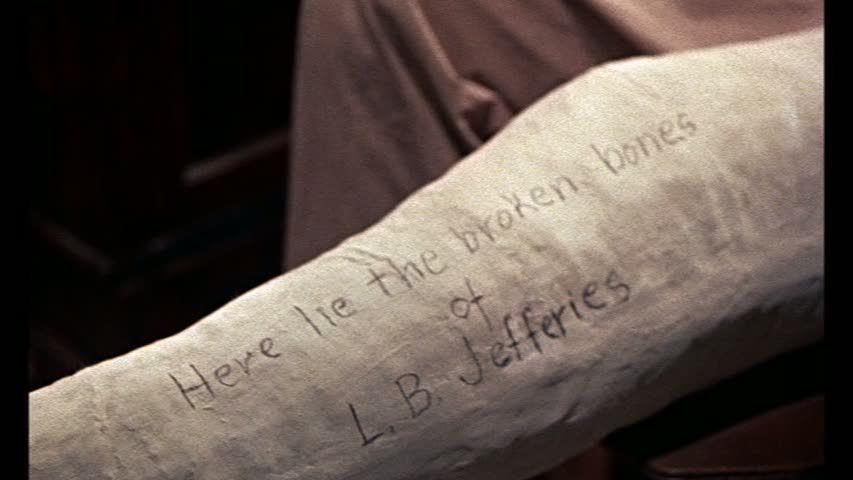
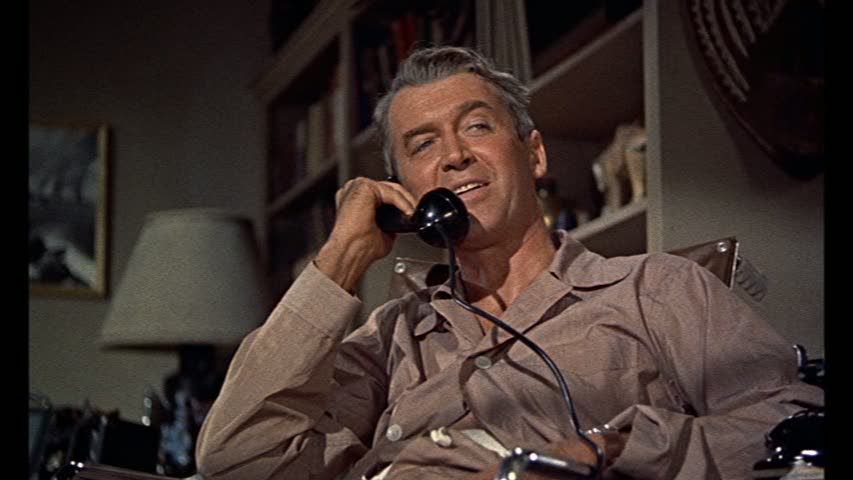
Alfred Hitchcock's Rear Window is not just a film about a murder mystery, but a film about voyeurism, about how and why we watch other people — and by extension, how and why we watch films themselves. It is one of the greatest of meta films, although it is on its surface not about the cinema at all. Its plot concerns the adventurer/photographer Jeff (James Stewart), who is confined to a wheelchair with a broken leg after an accident (brilliantly conveyed by Hitchcock, entirely visually, by panning across a series of photos and objects at the start of the film). Locked up in his apartment, Jeff is unable to work or move around much. So whenever he's not being visited by his nurse Stella (Thelma Ritter) or his glamorous lover Lisa (Grace Kelly), Jeff takes to spying on his neighbors through a pair of binoculars. Jeff's window faces the courtyard of his apartment complex, and from this vantage point he can see into the windows of his neighbors across the way. Through these portals, he catches glimpses of their lives in action, their daily routines and private little peculiarities. He doesn't see anything particularly fascinating in itself, other than the contortions of the statuesque blonde dancer across the way. Mostly, he just loves to watch. It has often been remarked that Jeff's experience mirrors that of the cinema audience, uniquely situated between passivity and activity: he is confined to one spot and given a choice of spectacles, and he turns his gaze on those corners of the image that he wishes to observe at any given moment.
One of these images turns out to be a murder mystery story, in which Jeff begins to suspect that one of his neighbors (Raymond Burr) has murdered his invalid wife. This story slowly comes together and begins to occupy more and more of Jeff's attention, causing him to fixate on his neighbor's often-darkened window, with the man's cigarette ominously sparking in the blackness inside. Jeff even enlists Lisa to help him in his amateur investigation. The actual thriller aspects of the film are almost inconsequential, however, in comparison to the simple pleasures of voyeurism that Hitchcock offers up here. The film implicitly makes its audience complicit in Jeff's peeping tom habits, unifying the protagonist's gaze with the audience's. We love watching, along with Jeff, as miniature narratives play out within all the windows across the way, fragments of people's lives. And at the same time, we love watching James Stewart at his wittiest and Grace Kelly at her sexiest, the voyeurism of watching movie stars be movie stars, an enthusiasm that Hitchcock, with his love of working with big stars, again shared with his audiences.
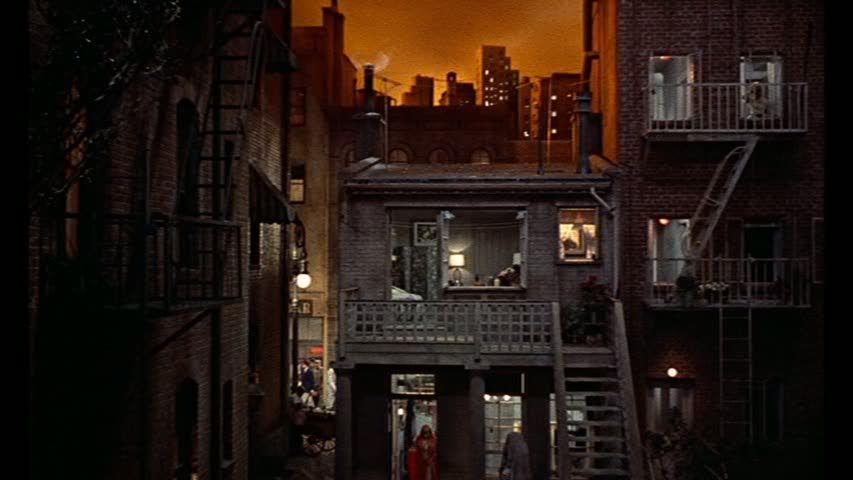
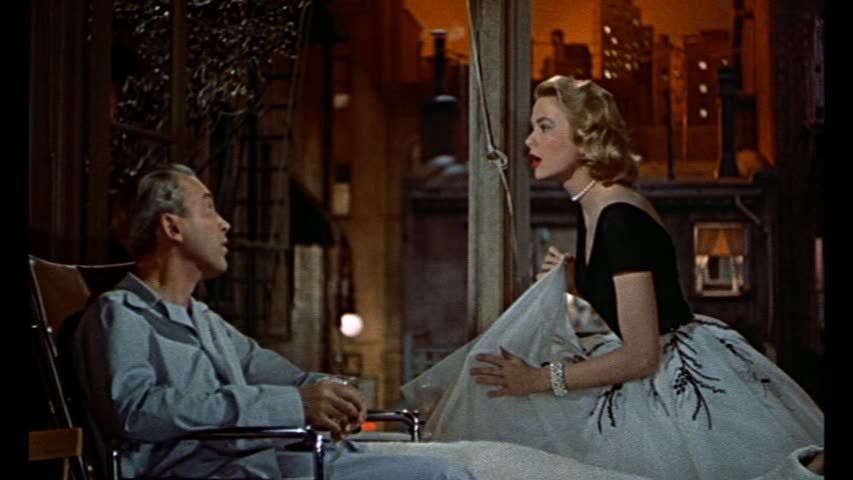

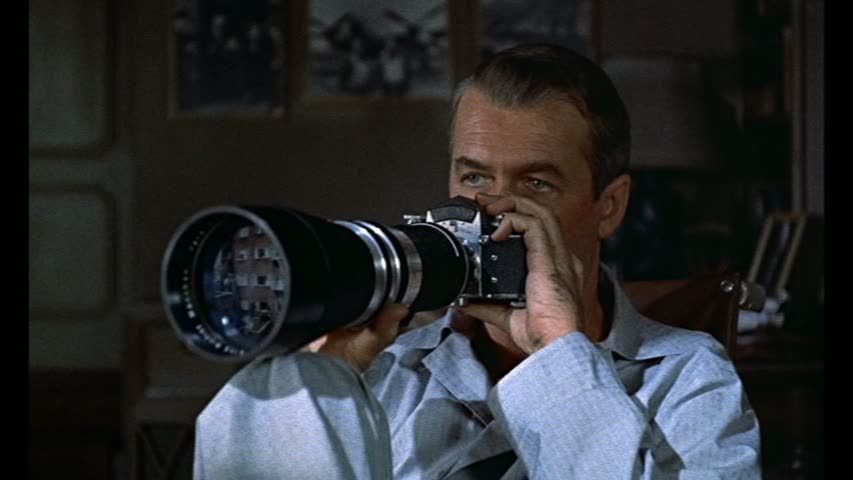

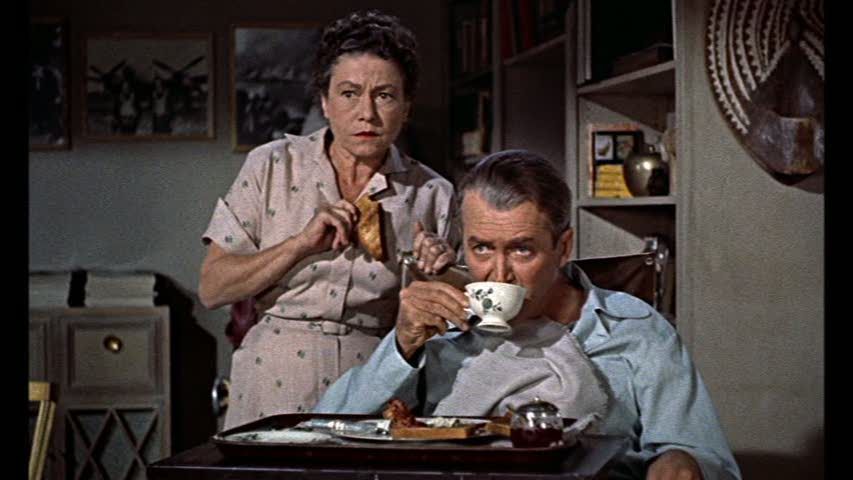

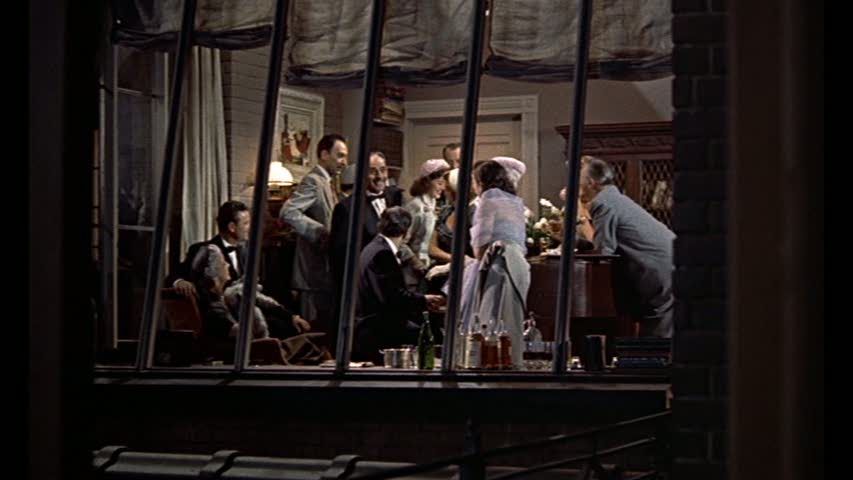
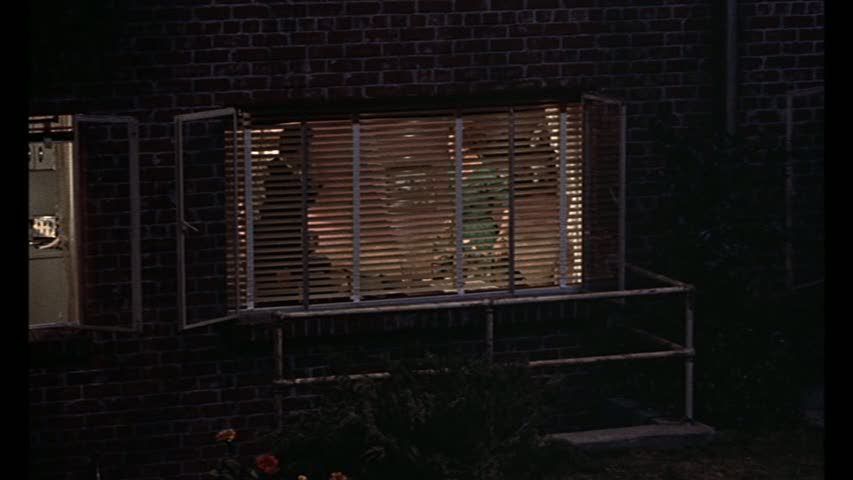
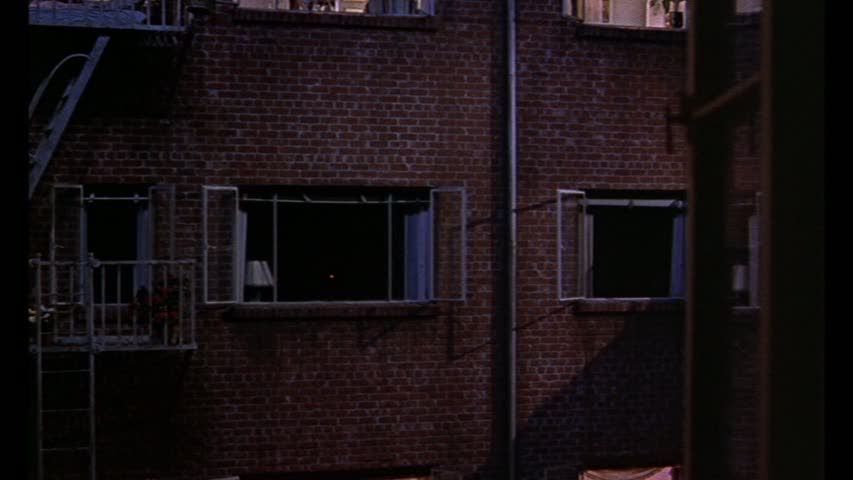
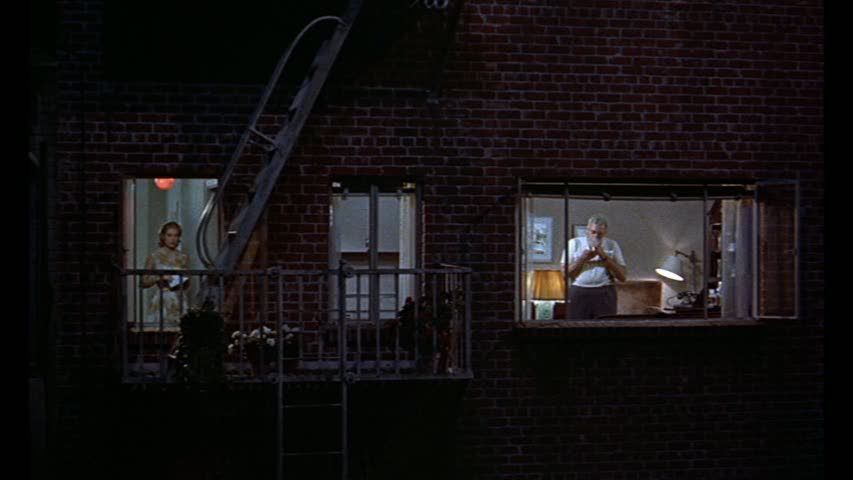
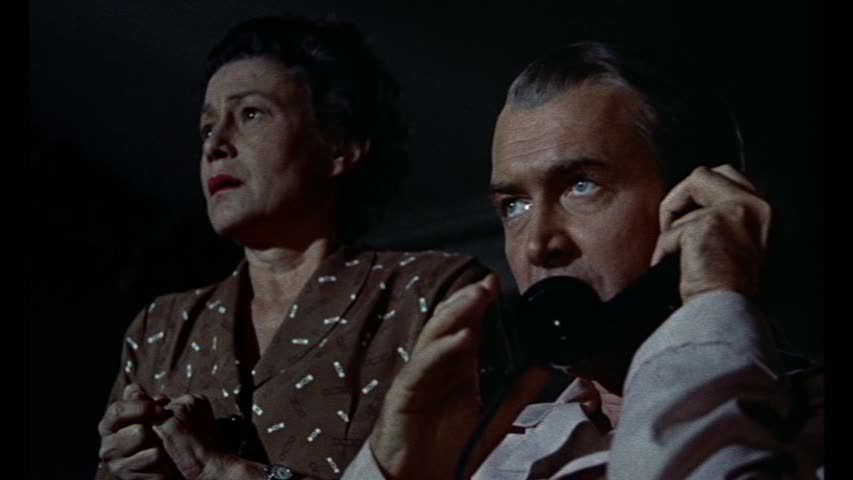

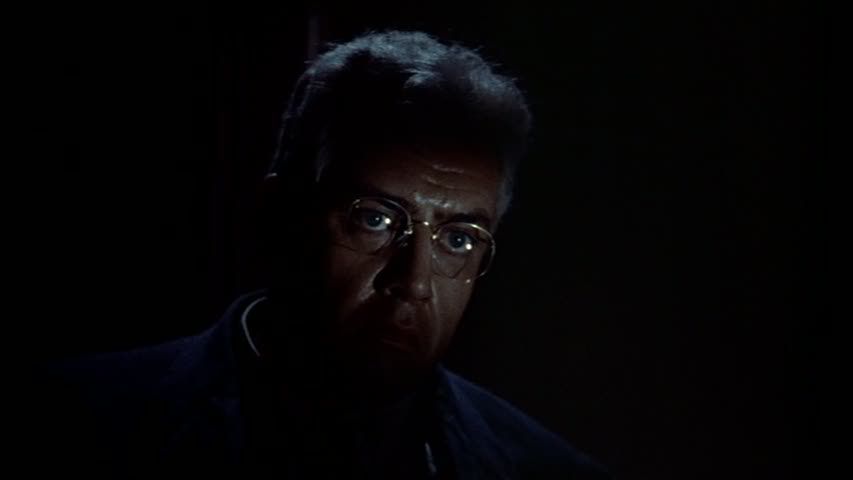











0Awesome Comments!